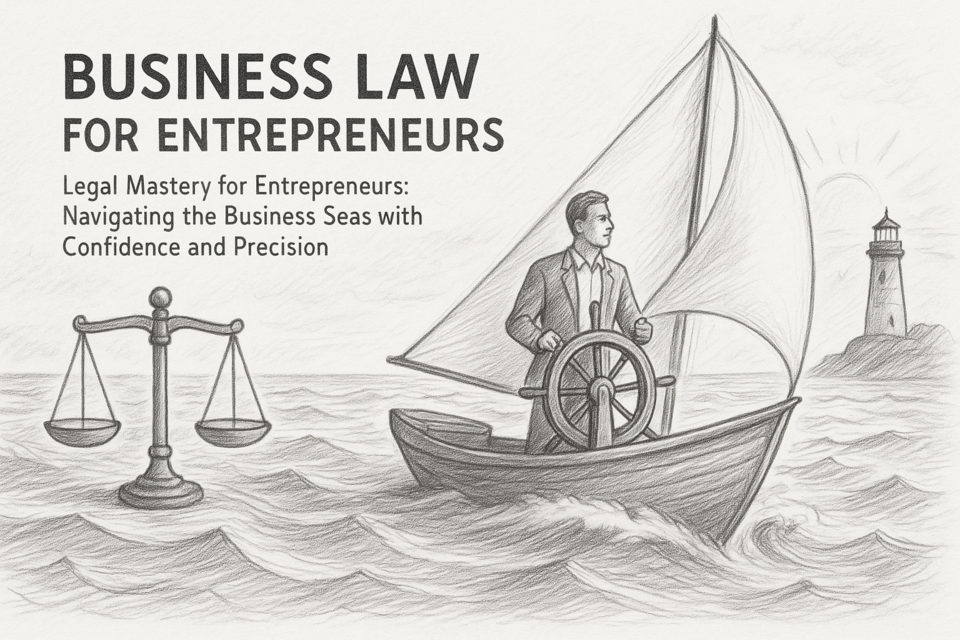Online Class: Managing Virtual Employees

no certificate
with CEU Certificate*
-
15Lessons
-
27Exams &
Assignments -
48Students
have taken this course -
4Hours
average time -
0.4CEUs
Course Description
"Managing Virtual Employees": Journey into the Heart of Digital Leadership!
Embark on an exhilarating voyage into the realm of virtual management with "Managing Virtual Employees," a cutting-edge online course meticulously tailored for the visionary leaders steering the ship of remote teams in our increasingly digital era. This transformative experience seeks to:
-
Illuminate the timeless core principles of management that form the bedrock of effective leadership.
-
Decode the intricate tapestry of virtual work, empowering you to adapt and thrive in this distinctive digital landscape.
Dive deep into the essence of management, unraveling the myriad skills that breathe life into leadership, and witnessing how these competencies evolve and flourish within the dynamic expanse of virtual workspaces. Through fifteen meticulously crafted modules, you'll not only comprehend each topic but immerse yourself in its profound significance, acquiring actionable insights, avant-garde strategies, and indispensable tools to hone your craft.
With engaging examination exercises accompanying each chapter, you'll not only gauge your progress but also refine your understanding, ensuring mastery at every juncture.
Whether you're a seasoned manager seeking to navigate the digital tide, an aspirant setting sights on leadership horizons, or a curious explorer at the crossroads of management and virtual realms, this course beckons.
Step into the future of leadership, harness the power of the digital age, and redefine what it means to lead in a boundlessly interconnected world. Your odyssey into the heart of digital leadership awaits!
- Completely Online
- Self-Paced
- 6 Months to Complete
- 24/7 Availability
- Start Anytime
- PC & Mac Compatible
- Android & iOS Friendly
- Accredited CEUs

Course Lessons
Lesson 1. Leading in a Digital Era
Understanding the shift in workplace dynamics is key for managers navigating the virtual realm, with success hinging on clear communication, strategic planning, and motivation. By examining post-pandemic transformations, the course reveals how changes in management approaches can drive productivity and employee satisfaction.Lesson 2. From Visionary to Delegative: The Spectrum of Management Styles
Democratic management encourages participation and collaboration, featuring consultative, participative, and transformational substyles, which involve stakeholders in decision-making processes. This model is particularly suitable for virtual settings as it leverages diverse perspectives and fosters empowerment through active engagement and communication.Lesson 3. Virtual Team Leadership: Navigating Management Styles
Cultivating a high-performing virtual team depends on clear communication, team collaboration, and support for employee well-being. Managers should employ tools that facilitate open dialogue, professional growth, and flexibility to enhance team morale and output.Lesson 4. Communicate to Elevate: Building Bridges Across Digital Workspaces
The success of remote teams pivots on effective communication, which aligns team members' efforts toward organizational objectives. By establishing clear communication protocols and embracing digital tools wisely, virtual workspaces can foster engagement and innovation.Lesson 5. Live Interactions in Digital Spaces: The Power of Video Conferencing
The future of video meetings will be shaped by advancements in AI and VR, promising more interactive and immersive virtual interactions. Enhanced security measures will also be crucial as these technologies become integral to everyday business operations.Lesson 6. The Backbone of Digital Collaboration: Exploring Business Messaging Platforms
Business messaging platforms have revolutionized the virtual workplace by facilitating seamless formal and informal communication among team members. These tools improve efficiency and morale by allowing rapid exchanges and fostering a sense of connectedness, even across different time zones.Lesson 7. Harnessing Digital Platforms for Enhanced Team Productivity
Selecting and implementing the right mix of project management and productivity platforms is vital for streamlining virtual work processes; these tools support project phases with structured efficiency, prioritize workload, and bolster team collaborations. Additionally, integrations and analytics boost oversight capabilities, enabling proactive management and strategic alignment.Lesson 8. Understanding DEI's Role in Virtual Workspaces
Building virtual inclusivity requires intentional strategies for fostering belonging and valuing everyone's contributions. By nurturing an open culture where participation thrives, companies ensure their virtual teams innovate through diverse ideas and perspectives.Lesson 9. Establishing DEI in Digital Work Landscapes
Fostering Diversity, Equity, and Inclusion (DEI) is essential in modern workplaces, enhancing both individual satisfaction and organizational success. Strategies such as equitable recognition, open dialogue, and leveraging virtual communication are pivotal in creating an inclusive culture where every team member feels valued.Lesson 10. Fostering Virtual Team Success through Goals and Accountability
Lesson Summary 4: In a virtual work landscape, setting learning and performance goals catalyzes employee development, while accountability mechanisms like transparent communication and shared responsibilities drive team synergy and organizational success.Lesson 11. SMART Goals Unveiled: Bridging Ambition and Precision
Achieving SMART goals involves navigating the nuances of ambition and practicality, harnessing the powerful synergy of specific, measurable, attainable, relevant, and time-based objectives. This strategic approach empowers individuals and teams, fostering a culture of accountability and continuous improvement.Lesson 12. Streamlined Virtual Meetings: Tools and Tips
To run an effective virtual meeting, preemptive planning and precise execution are crucial; this includes firmly setting agendas and managing technological setups. With these strategies, meetings transform from a perceived time-waste to powerful hubs for innovation and communication.Lesson 13. Transforming Virtual Work Conflicts into Growth Opportunities
Lesson 13 equips managers with strategies to address unique challenges in virtual workspaces, emphasizing effective communication and conflict resolution. It highlights the importance of structured agendas and clear roles to ensure efficient virtual meetings and prevent conflicts caused by miscommunications, interpersonal clashes, and work style differences.Lesson 14. Revolutionizing Remote Management: Letting Go for Growth
Micromanagement in remote setups exacerbates anxiety, stifles creativity, and diminishes job satisfaction, ultimately impeding team efficacy. A shift towards empowering team members through strategic trust and engagement enhances morale and unleashes untapped potential.Lesson 15. Self-Management: The Path to Professional Growth
Emphasizing the importance of self-management, the lesson outlines key strategies to enhance productivity and innovation within teams, promoting resilience, reflection, and lifelong education. By integrating personal development with organizational objectives, managers can achieve a harmonious and effective leadership model, focusing on progress and innovation.
Learning Outcomes
- Analyze the impact of COVID-19 on management practices by comparing pre-and post-pandemic strategies through case studies and discussions to understand organizational shifts.
- Identify and demonstrate effective management skills for leading virtual teams, including communication, emotional intelligence, and digital proficiency, by completing interactive scenarios and assessments.
- Define the key characteristics of autocratic, democratic, and laissez-faire management styles and their applications in different workplace contexts.
- Evaluate the effectiveness of different management styles in virtual environments by identifying their advantages and disadvantages in remote work settings.
- Demonstrate the ability to identify and describe three main management styles (autocratic, democratic, laissez-faire) and their subtypes based on situational appropriateness.
- Evaluate the effectiveness of different management styles in virtual workplaces and propose strategies for adapting traditional techniques to remote settings.
- Define virtual communication and identify three common challenges associated with it, including how time zones and media limitations affect team dynamics.
- Recognize and demonstrate best practices for optimizing virtual communication, such as maintaining clarity, fostering active listening, and selecting appropriate digital tools for team interaction.
- Define the role of video meetings in enhancing communication and collaboration in a virtual workplace by identifying three specific benefits over traditional text-based communication.
- Evaluate the effectiveness of three different video conferencing platforms by comparing their features, integration capabilities, and scalability options to determine which best meets organizational needs.
- Demonstrate the ability to use a messaging platform to effectively communicate with team members in a remote work environment by utilizing its features such as file sharing and real-time messaging.
- Describe the advantages of asynchronous communication in a global team setting, including improved collaboration and work-life balance by referencing specific examples of messaging platform functionalities.
- Demonstrate the ability to select and implement appropriate project management tools that align with organizational needs to optimize team productivity and efficiency.
- Demonstrate mastery of lesson content at levels of 70% or higher.
Additional Course Information

- Document Your Lifelong Learning Achievements
- Earn an Official Certificate Documenting Course Hours and CEUs
- Verify Your Certificate with a Unique Serial Number Online
- View and Share Your Certificate Online or Download/Print as PDF
- Display Your Certificate on Your Resume and Promote Your Achievements Using Social Media

Choose Your Subscription Plan
No Certificate / No CEUs
This course only
| Includes certificate | X |
| Includes CEUs | X |
| Self-paced |

|
| Instructor support |

|
| Time to complete | 6 months |
| No. of courses | 1 course |
Certificate & CEUs
This course only
| Includes certificate |

|
| Includes CEUs |

|
| Self-paced |

|
| Instructor support |

|
| Time to complete | 6 months |
| No. of courses | 1 course |
Certificates & CEUs
Includes all 600+ courses
| Includes certificate |

|
| Includes CEUs |

|
| Self-paced |

|
| Instructor support |

|
| Time to complete | 12 Months |
| No. of courses | 600+ |
Certificates & CEUs
Includes all 600+ courses
| Includes certificate |

|
| Includes CEUs |

|
| Self-paced |

|
| Instructor support |

|
| Time to complete | 24 Months |
| No. of courses | 600+ |
Related Courses
-
 4 hours
0.4 CEUs
Business Budgeting 101: How to Plan, Save, and Manage
+ More Info
4 hours
0.4 CEUs
Business Budgeting 101: How to Plan, Save, and Manage
+ More Info
-
 2 hours
0.2 CEUs
Purchasing and Vendor Management 101
+ More Info
2 hours
0.2 CEUs
Purchasing and Vendor Management 101
+ More Info
-
 5 hours
0.5 CEUs
Recruitment and Retention Strategies
+ More Info
5 hours
0.5 CEUs
Recruitment and Retention Strategies
+ More Info
-
 5 hours
0.5 CEUs
Business Etiquette
+ More Info
5 hours
0.5 CEUs
Business Etiquette
+ More Info
-
 6 hours
0.6 CEUs
Fair Standards Labor Act and the Workforce
+ More Info
6 hours
0.6 CEUs
Fair Standards Labor Act and the Workforce
+ More Info
-
 10 hours
1.0 CEUs
Disaster Risk Reduction: Preparing for Emergencies
+ More Info
10 hours
1.0 CEUs
Disaster Risk Reduction: Preparing for Emergencies
+ More Info
-
 5 hours
0.5 CEUs
Operations Management 101
+ More Info
5 hours
0.5 CEUs
Operations Management 101
+ More Info
-
 8 hours
0.8 CEUs
Strategic Planning
+ More Info
8 hours
0.8 CEUs
Strategic Planning
+ More Info
-
 5 hours
0.5 CEUs
Running Effective Meetings
+ More Info
5 hours
0.5 CEUs
Running Effective Meetings
+ More Info
-
 8 hours
0.8 CEUs
Restaurant Management Mastery
+ More Info
8 hours
0.8 CEUs
Restaurant Management Mastery
+ More Info
-
 4 hours
0.4 CEUs
Launching Your Home Daycare Business
+ More Info
4 hours
0.4 CEUs
Launching Your Home Daycare Business
+ More Info
-
 7 hours
0.7 CEUs
Lean Management
+ More Info
7 hours
0.7 CEUs
Lean Management
+ More Info
-
 5 hours
0.5 CEUs
Understanding Workers' Compensation
+ More Info
5 hours
0.5 CEUs
Understanding Workers' Compensation
+ More Info
-
 7 hours
0.7 CEUs
Respectful International Workplace
+ More Info
7 hours
0.7 CEUs
Respectful International Workplace
+ More Info
-
 6 hours
0.6 CEUs
Managing Difficult Employees
+ More Info
6 hours
0.6 CEUs
Managing Difficult Employees
+ More Info
-
 5 hours
0.5 CEUs
Team Building 101
+ More Info
5 hours
0.5 CEUs
Team Building 101
+ More Info
-
 8 hours
0.8 CEUs
Decision Making Skills
+ More Info
8 hours
0.8 CEUs
Decision Making Skills
+ More Info
-
 9 hours
0.9 CEUs
Introduction to Six Sigma
+ More Info
9 hours
0.9 CEUs
Introduction to Six Sigma
+ More Info
-
 7 hours
0.7 CEUs
Organizational Behavior in Business
+ More Info
7 hours
0.7 CEUs
Organizational Behavior in Business
+ More Info
-
 7 hours
0.7 CEUs
Business Law for Entrepreneurs
+ More Info
7 hours
0.7 CEUs
Business Law for Entrepreneurs
+ More Info
-
 7 hours
0.7 CEUs
Employment Law Fundamentals
+ More Info
7 hours
0.7 CEUs
Employment Law Fundamentals
+ More Info
-
 3 hours
0.3 CEUs
Problem Solving Strategies
+ More Info
3 hours
0.3 CEUs
Problem Solving Strategies
+ More Info
-
 8 hours
0.8 CEUs
Creating a Positive Work Environment
+ More Info
8 hours
0.8 CEUs
Creating a Positive Work Environment
+ More Info
-
 5 hours
0.5 CEUs
Workplace Safety
+ More Info
5 hours
0.5 CEUs
Workplace Safety
+ More Info






